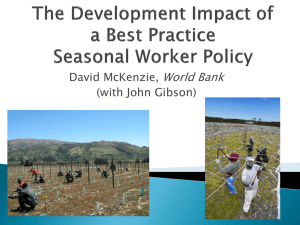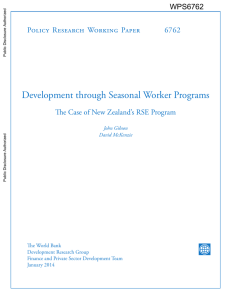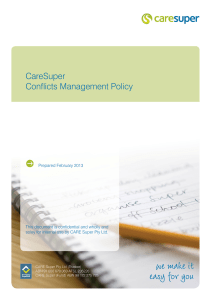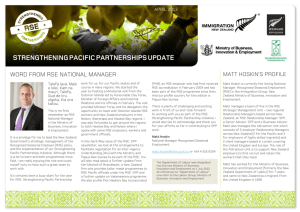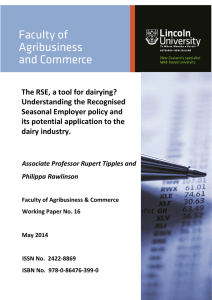Recognised Seasonal Employer Policy
advertisement
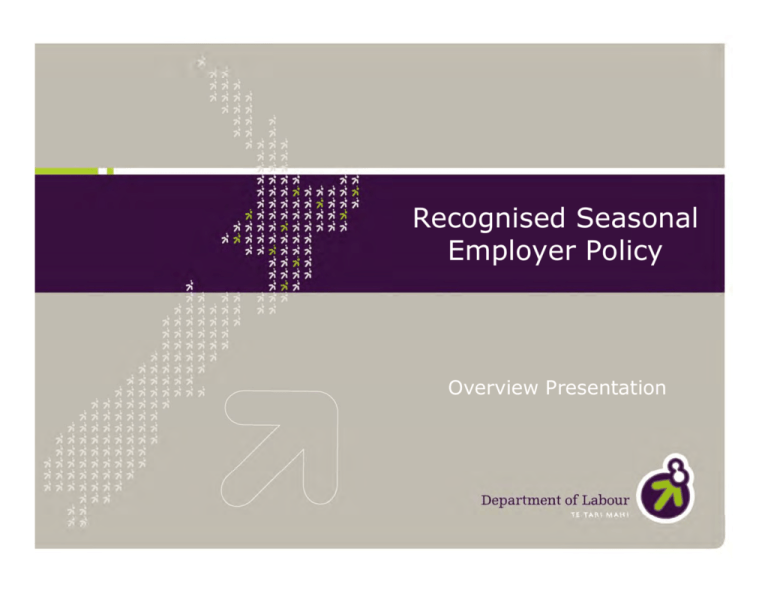
Recognised Seasonal Employer Policy Overview Presentation Purpose The purpose of this presentation is to give an overview of the Recognised Seasonal Employer (RSE) Policy including: • • • • • • • Background Aims and Objectives of the Policy Governance Policy Steps in the Process Facilitative Measures Non-Compliance Benefits Aims and Objectives of the RSE Policy The RSE policy is designed to: • be facilitative for industry • ensure New Zealanders are the first choice of employers • provide an opportunity to contribute to Pacific development • manage immigration risk, and • help increase productivity. The RSE Policy - Overview One: Employer Applies for RSE Status Key elements for employers would include: • evidence of a commitment to recruiting and training New Zealanders • demonstrated compliance with immigration, employment, tax, and health and safety law • demonstrable ability to pay their workers at market rates • a credible record in the industry, and • commitment to provide sufficient pastoral care. Pastoral Care Employers will need to ensure their workers will be well catered for. This includes arrangements for: • • • • suitable accommodation translation Transportation, and induction to life in New Zealand, including providing opportunities for recreation and religious observance. Two: Employer Applies for an ATR Key elements for employers include: • a commitment to pay half of the workers’ travel costs to New Zealand • evidence of arrangements for pastoral care matters • evidence that employees will be paid at least market rates and that there will be enough work, and • a commitment to pay any costs associated with removing workers from New Zealand if they become illegal. Three: Worker Applies for Visa Key elements for workers include: • meeting bona fide, character and relevant health requirements • evidence that arrangements have been made to leave New Zealand at the end of their stay • be 18 years of age or older • be offshore at the time of their application, and • hold an offer of employment from a Recognised Seasonal Employer. Four: Circular Migration Workers have the opportunity to return the next season if labour shortages continue and: • they have a job offer from a Recognised Seasonal Employer (who holds a current Agreement to Recruit), and • they have complied with New Zealand law and all immigration requirements. Facilitative Measures May include: • facilitating links between New Zealand employers and Pacific communities • oversight of recruiters by Pacific governments to ensure integrity of the selection processes • providing pre-departure orientation or training, and • providing a local pastoral care co-ordinator to link workers with communities and church groups. Non-Compliance Employers • Breaking the conditions of the RSE or ATR agreements means that employers may be liable to have their recognition rescinded. Workers • Breeching permit conditions (such as remaining in New Zealand after a permit has expired) would mean workers could become liable for removal. This would have an effect on any future applications. Amendments and Additional Measures Amendments: • Extension from 7 to 9 month permits for workers from Kiribati and Tuvalu • Changes to where employer is required to meet 50% share of return Airfare Additional Measures: • Transitional RSE policy • RSE Transitional Facilitators • three month work permit extension for working holiday scheme permit holders in New Zealand Kick Start States as at 7 June 2008 • • • • • Kiribati Samoa Tonga Tuvalu Vanuatu • Solomon Islands • Total 70 649 788 99 1700 238 3544 (Non-Kick Start State) Update on progress of RSE Policy – 1 April 2007 to 7 June 2008 • 103 companies have been approved as Recognised Seasonal Employers. • 208 Agreements to Recruit (ATR) have been issued. • 4443 workers have been engaged to date. • 6969 positions have been allocated to date under the 208 ATR’s Benefits to development • RSE policy provides the opportunity for capital acquisition (remittances) and increasing human capital (skill transfers). • Selection is focussed at unskilled workers with limited migration opportunities, in smaller communities. • This diffuses the benefits of migration into poorer regions and avoids the creaming off of skilled workers. Further development outcomes • The RSE policy is prompting many New Zealand employers to think about how they can build broader development linkages with communities in the Pacific, rather than simply view this as an employer-employee relationship. Research on development outcomes • Research is underway to identify the early impact of RSE on development outcomes (economic and social) in the Pacific Islands. • Preliminary findings are that RSE policy has succeeded in creating new opportunities for relatively poor and unskilled Tongans to work in New Zealand. Development constraints • RSE alone cannot solve development challenges in Pacific countries, including: • the high cost of remitting money • lack of access to sound financial services, and • limited employment, training and investment opportunities. • The development benefits of RSE will be optimised if these issues are addressed. QUESTIONS?
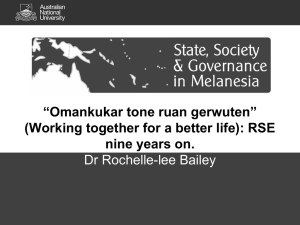
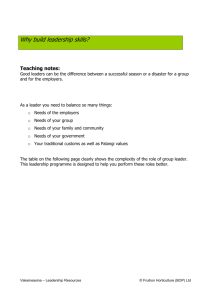
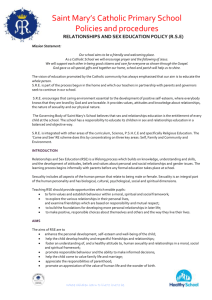
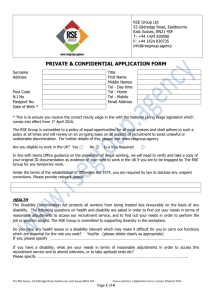
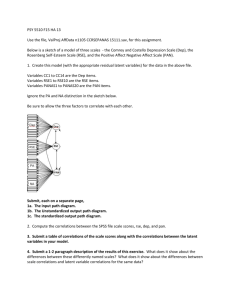

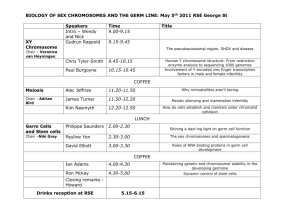
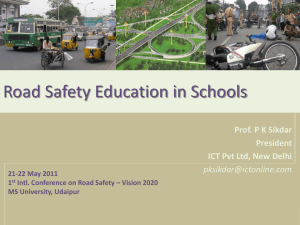
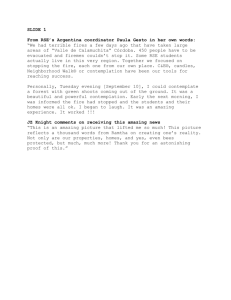

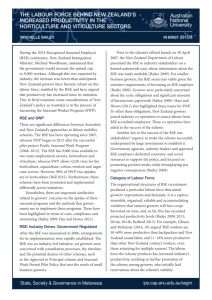


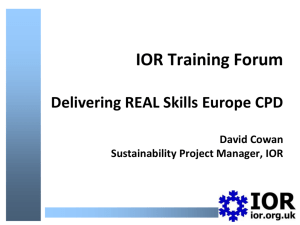
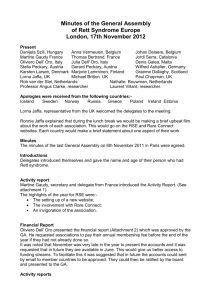
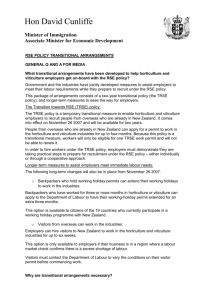
![[RSE's details and address]](http://s3.studylib.net/store/data/008968545_1-d7528e2f45f635176193b4772c6058b5-300x300.png)
